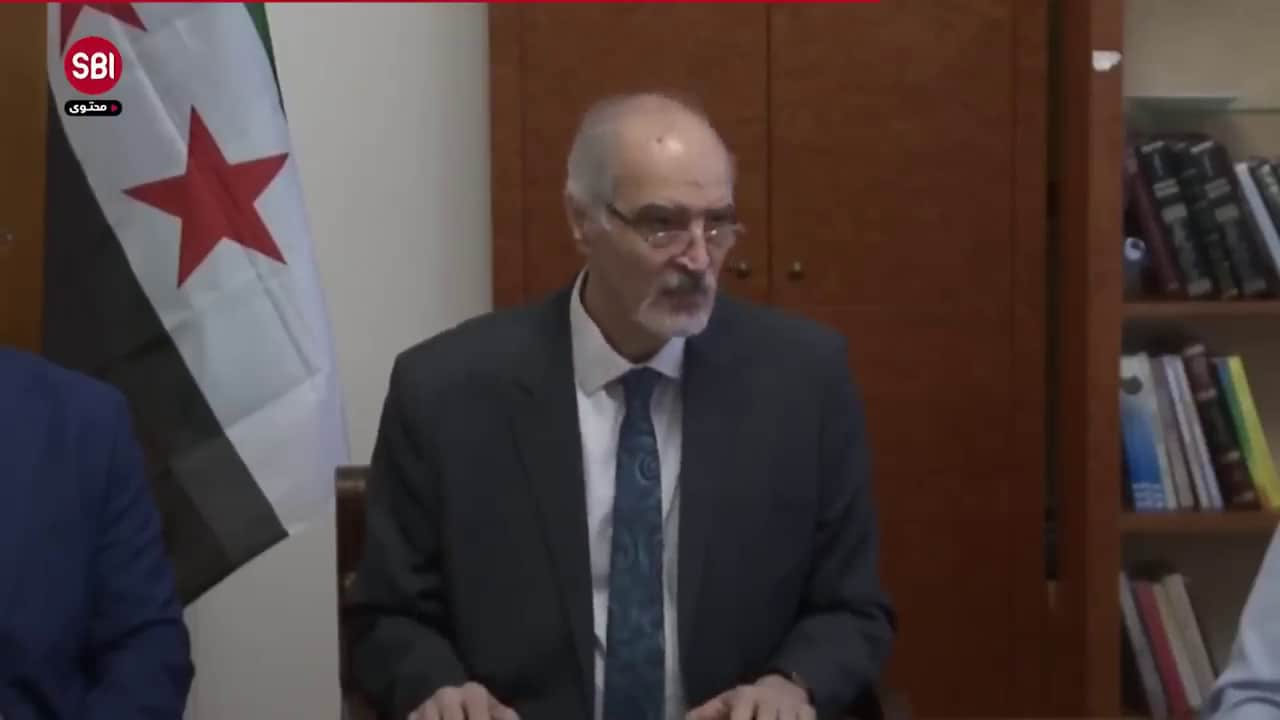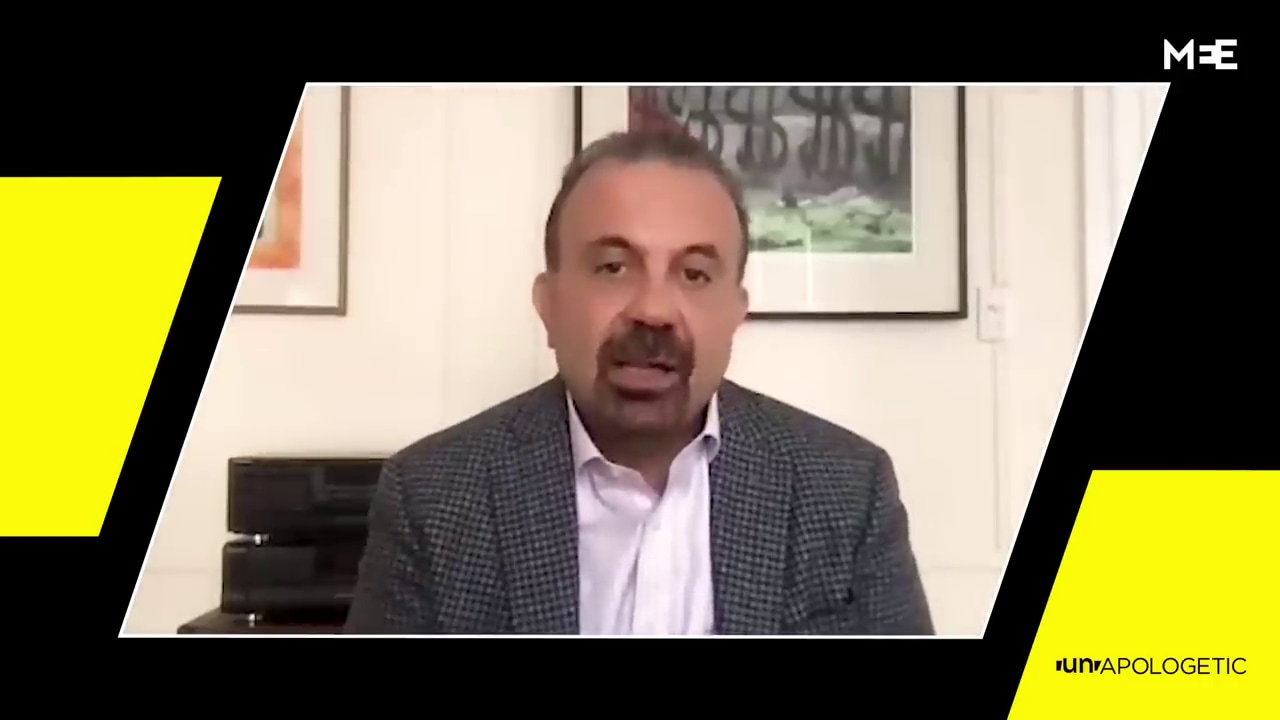
London-Based Iraqi journalist Safaa Subhi said in a September 20, 2020 interview on Etejah TV (Iraq) that he supports Arab normalization with Israel. He said that even the Iranians and the Palestinians have had diplomatic relations with Israel in the past 100 years, and he pointed out that pan-Arabism is gone, saying that there is a new generation of Arabs that is open to the world and that wants peace. He praised the UAE and Bahrain for exercising their sovereignty by signing peace deals with Israel, and he criticized Iran for saying that Israel is its enemy despite not having fired a single bullet at Israel. Subhi added that the people of the Middle East have had enough of Iran's regional intervention.
Safaa Subhi: "Iran used to have historical ties with Israel between 1948 and 1979. There used to be an Israeli embassy in Tehran, and the Israeli flag was flown there. Why are the Iranians allowed to enjoy 31 years of ties with Israel, but it is forbidden for the Arabs, who must spend their lives – 70, 80, or 100 years – in this hostility that has brought nothing but destruction upon the region?
"We are now in 2020. The mentality of the 1960s and 1970s, when Abdel Nasser, Qaddafi, Hafez Al-Assad, and Saddam Hussein used to deliver pan-Arab speeches... This is gone now. There is a new generation now that is open to the world and it wants modern achievements, it wants to have a presence on the global stage, and it wants peace."
Host: "So you support normalizing relations with Israel?"
Subhi: "Absolutely.
[...]
"Aren't the Palestinians Muslims? Aren't they aware of the importance of Jerusalem? Yet, they signed the Oslo Accords in 1993. Didn't the PLO justify its recognition of Israel already in the 1970s? Must we be holier than the Palestinians?
"There is another important point. The UAE and Bahrain have exercised their sovereign decision making. When making sovereign decisions, one must ignore the popular mood. The only thing that is taken into account is the country's best interests. This was crystal clear in the 1970s, when Sadat signed the Camp David Accords with Israel. That was a sovereign decision that disregarded the popular mood. The same was true for the Wadi Araba [Israeli-Jordanian] Treaty in 1994, when King Hussein signed the peace agreement, disregarding the popular mood.
[...]
"Israel can be compared to Singapore. Singapore's GDP is equal to that of Turkey, Iran, Saudi Arabia, and the Gulf countries. Why? Because they invested in people's minds. The same is true for Israel. It is a very advanced country. Thirty percent of the patents on your phone – be it Samsung or Apple – were registered in Tel Aviv. There is a huge Silicon Valley in Israel in the field of high-tech systems.
"So I think that the ties between the UAE and Israel are very logical, as both countries have very high development indexes. It is the economy – and not historic heritage, a heritage of hatred – that will push these ties forward in the coming years.
[...]
"Your guest from Tehran said that Israel is his enemy. Okay, it has been your enemy for 41 years, yet you have not fired a single bullet at it? Amazing... Since the 1970s, we have been hearing the Iranians saying that the liberation of Jerusalem passes through Karbala. Later on, the path to the liberation of Jerusalem passed through Aleppo, then through the Shebaa Farms, and then through Sanaa. Yet we have not seen a single bullet fired towards Israel. It is as if the Iranians want to fight the Israelis down to the last Iraqi, Syrian, Lebanese, and Yemeni. At the same time, they do not want to sacrifice a single Iranian in this futile conflict. Then he tells me that he is Israel's enemy, without firing a single bullet. This is absurd.
"Also, what is the logic behind your hostility towards Israel? [Iran] is not one of the countries that are directly in conflict [with Israel]. You do not share a border [with Israel], you do not have any ties with it. Why is [Israel] an enemy country? Is it just a matter of [religious] ideology? Ties between countries must not be based on such ideologies or historical heritage. Countries look out for their interests.
"Since 1979, when they severed their ties with Israel – have the Iranians benefitted in any way [from this]? Really, it's a paradox I do not want to pin one thing on the other, but... This hostility, this lack of moderation... Iran has not been a moderating agent in this region for fort years...
"Your guest says that the Emiratis are threatening the Iranians. Well, you also threatened the Emiratis through the Houthis and their missiles. You attacked the Saudis through the militias in southern Iraq, you shut down oil production which led to a 5% rise in oil prices. The attack on the Abqaiq oil wells last year... You have sleeper cells in Bahrain and in Kuwait. You have Hizbullah that is active in Kuwait... Why? How much longer?
"People have had enough. They do not want to fight on anybody's behalf. You want to fight the Israelis? Go ahead! The Israelis are there and you know the way, now show us what you're worth. Just take your hands off the region! Sorry for speaking this way, but people have had enough. The region is in ruins. Cities like Mosul, Aleppo, Homs, Hama, and Tikrit have been razed to the ground. For whose sake? And why?"














